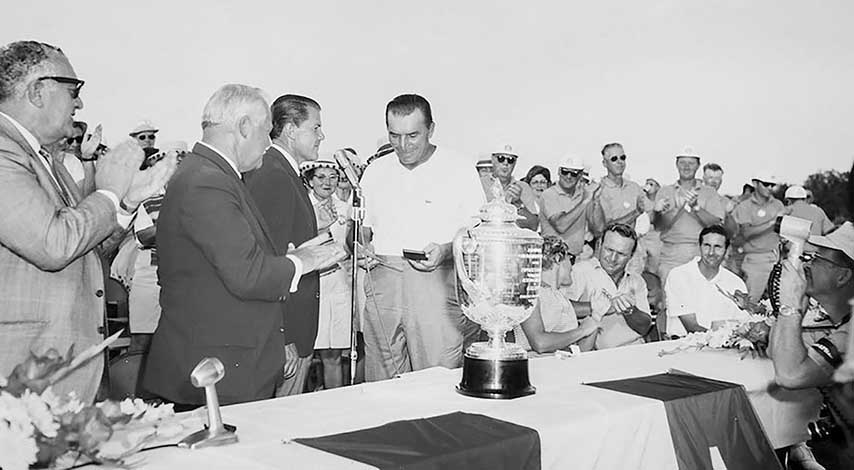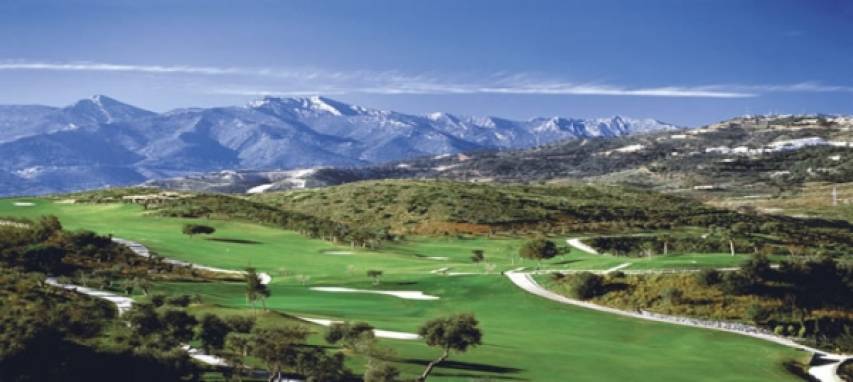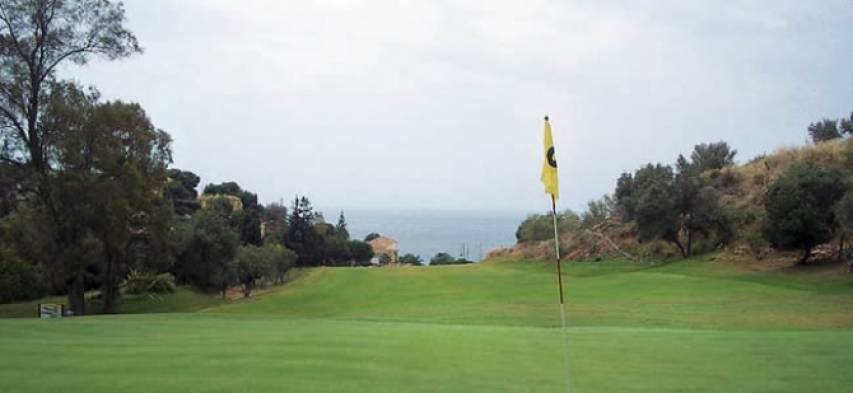Arnold Palmer had a 2.4-metre putt on the last hole at Pecan Valley Golf Club in San Antonio (Texas) to force a play-off for the first time in the US PGA Championship. However, the ball just didn’t want to enter the hole, and the ultimate glory was enjoyed by Julius Boros who, at 48 years and four months that summer of 1968, became the oldest player to win a major championship – a record that remains unbeaten. Palmer, incidentally, finished second on two other occasions in the PGA Championship, the only one of the four majors that he never won.
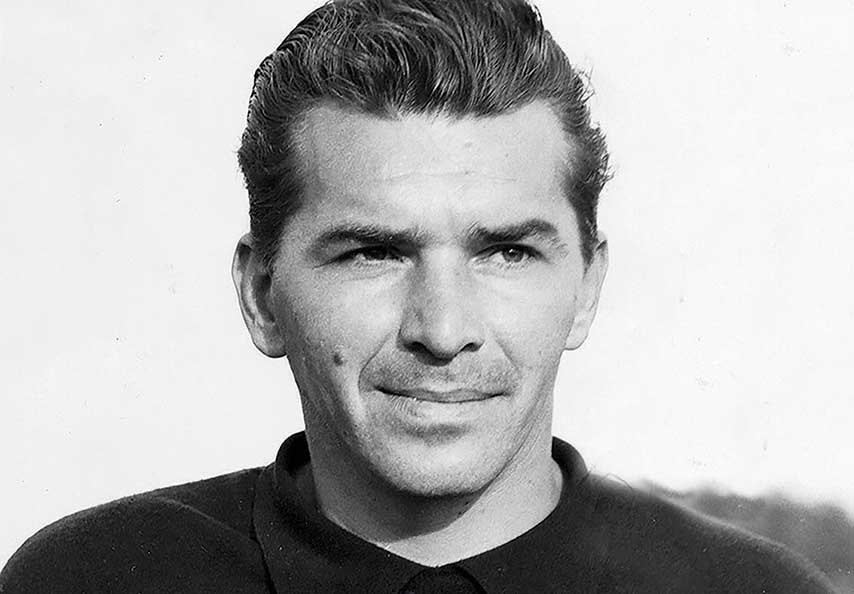
The 1968 PGA Championship was the 50th PGA Championship, played July 18–21 at Pecan Valley Golf Club in San Antonio, Texas. Julius Boros, age 48, won the third of his three major titles, one stroke ahead of runners-up Bob Charles and Arnold Palmer. Through 2020, Boros remains the oldest winner of a major championship. The tournament was played in very hot conditions. Palmer had an 8-foot putt to tie on the 72nd green, but it missed on the high side of the hole. It was the second of his three runner-up finishes at the only major he never won; he also tied for second in 1964 and 1970. This was the final major before the formation of the Tournament Players Division, later renamed the PGA Tour.
In his seventh PGA Championship, Jack Nicklaus missed his first cut in the event by a stroke; five of his six previous finishes were in the top three, with a victory in 1963 in Dallas. He made the next nine cuts at the PGA Championship and won four more times (1971, 1973, 1975, 1980). Boros started the tournament with a 71, six strokes behind first-round leader Marty Fleckman. The second day he repeated that score to be placed ninth, four adrift of co-leaders Frank Beard and Fleckman. Palmer and Lee Treviño shared fourth place, two shots ahead of Boros. In the third round, Boros’s 70 boosted him to third place, jointly with Palmer and Bob Charles, two shots behind the same halfway leaders, Beard and Fleckman.
So to the big day: Sunday, 21 July 1968. Boros showcased his talent and experience with a 69 for a one-over total of 281 and victory by one stroke over Palmer and Charles. Fleckman was fourth and Beard fifth. In addition to becoming the oldest player to win a major, Boros also collected a $25,000 prize as champion.
PERFECT COMBINATION
If any one player personified the combination of effortless ease, flawless technique and hidden competitive fire, it was Julius Boros.
Everything about the phlegmatic former accountant conveyed relaxation and imperturbability. But, when an opportunity to win a championship was on the line, few converted as efficiently or as briskly as Boros.
Although he did not turn professional until the age of 29, and despite suffering from physical maladies all his life, Boros put together a career that was remarkable for its consistency, longevity and brilliance. He won 18 times between 1952 and 1968, including three major championships. He was PGA Player of the Year in 1952 and 1963, led the money list in 1952 and 1955, and played on four Ryder Cup teams.
.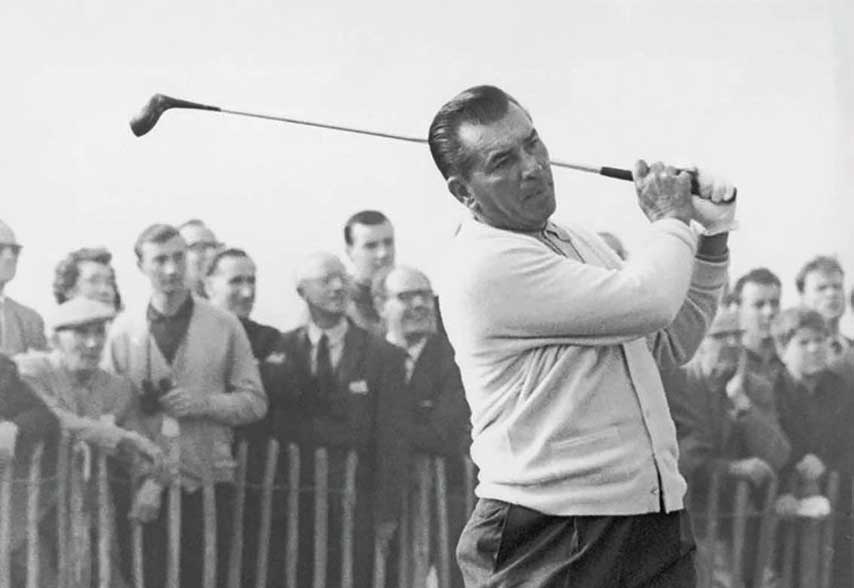
His first victory was the 1952 US Open, which he won by four at Northwood C.C. in Dallas. He won the championship again in 1963 at Brookline, birdieing two of the last three holes to get into a playoff with Arnold Palmer and Jackie Cupit, and defeating them with a flawless 70 in the playoff. It made him, at 43, the oldest winner of the championship since Ted Ray. Then, in 1968, Boros won the PGA Championship in San Antonio by again defeating Palmer down the stretch and, at 48, became the oldest winner of a major.
Besides majors, Boros had a way of winning big-money events. He won the World Championship of Golf in 1952 and 1955 when the first prize was an astronomical $50,000. His last victory was the 1968 Westchester Classic, which then had the biggest first prize in golf at $50,000. In 1975, the 55-year-old Boros came within a whisker of becoming the oldest winner ever of a PGA Tour event, losing a sudden-death playoff to Gene Littler at Westchester. Asked when he was going to retire, Boros answered, “Retire to what? I’m already a golfer and a fisherman. I have nothing to retire to.”
The son of Hungarian immigrants, Boros was born 3 March 1920, in Fairfield, Connecticut. A big man at six feet and considerably more than 200 pounds, he had a nonchalant bearing that earned him the nickname “Moose”. He learned to take things even easier after discovering during his military stint that he had a bad heart. Despite his apparent imperturbability, he admitted, “I was as apprehensive as the next guy in a tight situation. It felt like razor blades in my stomach.”
The biggest reason Boros was able to last so long was that his technique was so free of strain, and technically correct. Boros’ motto was “swing easy, hit hard”, and he could produce plenty of power. Yet the overall effect was one of grace and control, on fairways and greens.
“Julius Boros is all hands and wrists, like a man dusting the furniture,” said 1964 British Open champion Tony Lema. His iron shots in particular landed with unique softness, as if by a parachute. He was also the master of the sand wedge, particularly out of deep rough around the green, his soft, slow swing feathering the ball with uncanny touch.
It all reflected itself in his success at the championship that is most about control, the US Open. Boros finished in the top five of the US Open nine times between 1951 and 1965. And, as late as 1973, he was tied for the lead after 62 holes before finishing joint seventh.
Boros won the 1977 PGA Seniors Championship and played a key role in the launch of the Champions Tour by making the final birdie putt on the sixth extra hole of sudden-death that gave partner Roberto De Vicenzo and him victory over Tommy Bolt and Art Wall in the 1979 Legends of Golf.
Boros died on a golf course near his home in Florida, on 28 May 1994. His son, Guy, won the 1996 Greater Vancouver Open, making the Boroses one of only three father-son tandems to have won on the PGA Tour.



